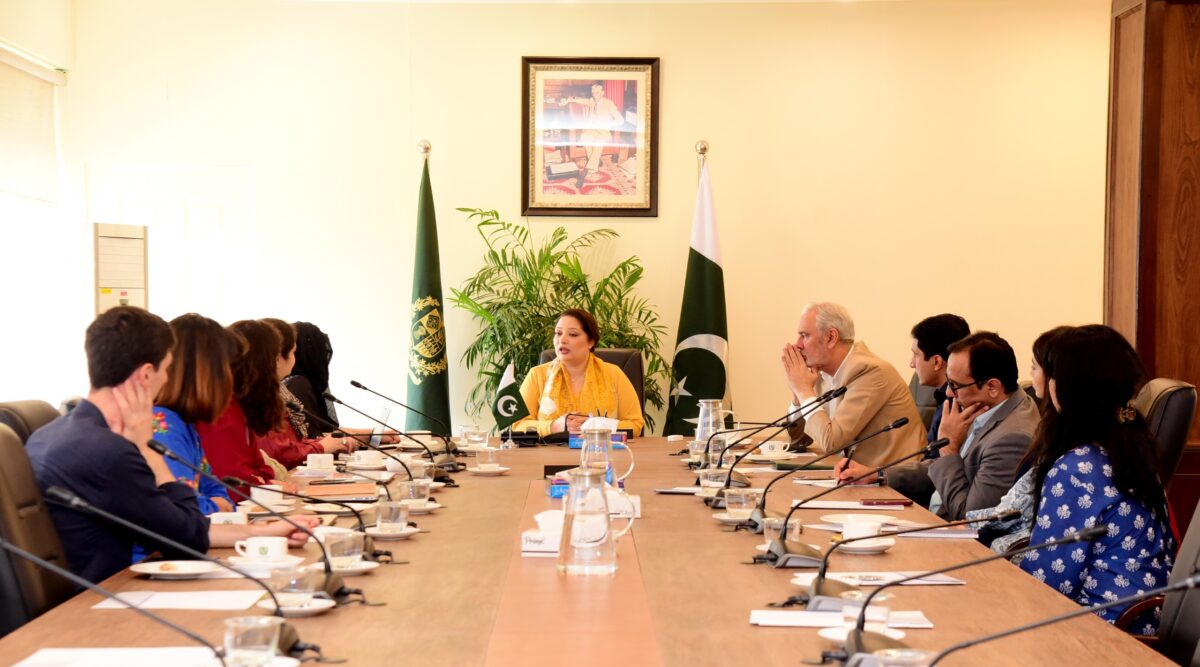Islamabad, Sep 6: A high-level Chinese delegation met with Prime Minister Romina Khurshid Alam’s coordinator for climate change on Friday. During the meeting, they talked about a number of topics related to their ambitious plan to assist Pakistan in modernizing its mass transit system so that the country can offer top-notch transportation options to the general public while meeting targets for environmental sustainability and climate resilience.
The delegation informed the PM’s climate assistant about the Pakistan Green Transport Project (PGTP), an ambitious initiative that aims to transform the nation’s public transportation system to become more environmentally friendly and sustainable. The delegation was made up of senior-level officials from the Chongqing CRRC Hengton Vehicle Company and Chongqing Public Transport Group Company, PowerChina International, and Daewoo Pakistan Express.
According to Faisal Ahmed Siddiqui, CEO of Daewoo Pakistan Express group, who led the delegation, “PGTP is a consortium of Chinese and Pakistani transport companies, basically set up under the China Pakistan Economic Corridor (CPEC) framework, working to bring zero-emission, green transport in the country, which would benefit the common man in country, reduce petroleum import bill, ensure optimal utilization of the power generation capacity and above all improve the environmental conditions across the country.”
According to Siddiqui, a Memorandum of Understanding was already signed by the consortium members at the June 2024 Pakistan Business Conference in Schenzhen, China, in the presence of Federal Ministers for Industries and Production Rana Tanveer Hussain, Federal Commerce Minister Jam Kamal, and Federal Minister for Privatization and Board of Investment Abdul Aleem Khan.
A senior representative of the Chinese transportation company Zhou Zheng told Ms. Alam, “Now, efforts are being expedited in support with the provincial governments to introduce electric buses, set up unified charging systems for the e-transport, and the bus stop mini shopping mall model initially in Islamabad, Lahore, Karachi.”
The senior Chinese transport company official Zhou Zheng emphasized, “We aim to provide technical assistance to reduce the growth of energy consumption & related greenhouse gas (GHG) emissions in the transport sector in the country, while simultaneously improving urban environmental conditions and trade competitiveness through the network of e-buses in urban centers of Pakistan through the Pakistan Green Transport Project.”
He went on to say that the project also aims to integrate renewable energy sources like solar-powered cars, improve public transportation, encourage the use of electric vehicles (EVs), reduce carbon emissions, and improve fuel economy.
The endeavor to lower air pollution in cities like Lahore, Karachi, and Islamabad, according to the delegation members, may be a step toward the implementation of carbon credit systems, which would further boost the adoption of green transportation in the nation. “The consortium of Chinese and Pakistani transport companies will be welcomed and be fully supported to implement the game-changing e-transport system in the Pakistani cities,” she said, assuring them of the climate change & environmental coordination ministry’s unwavering support for the Pakistan Green Transport Project.
“I hope that by encouraging economically viable and effective mobility alternatives across the country, the green transport project will completely transform the nation’s transportation infrastructure.
She emphasized that in order to lessen air pollution and give citizens more environmentally friendly options for urban travel, cities like Islamabad, Lahore, and Karachi have already included electric buses into their public transit networks.
Romina Khurshid Alam also emphasized Pakistan’s more extensive initiatives to combat climate change and fulfill its obligations under the Paris Agreement by lowering greenhouse gas (GHG) emissions from a variety of industries, especially the transportation sector. “As one of the world’s most populous nations, Pakistan understands the critical need to implement sustainable transportation practices to reduce pollution, enhance air quality, and advance the welfare of its people,” the spokesperson stated.









